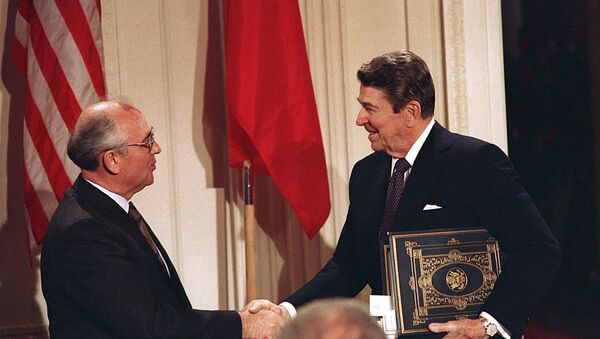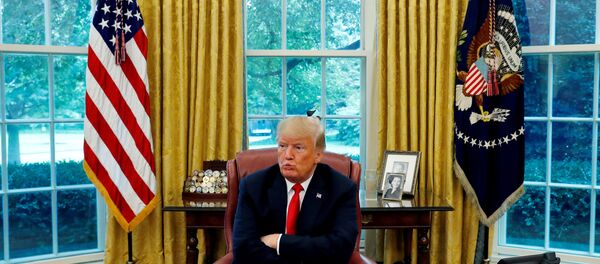While perhaps it ought to be unremarkable that citizens of a nuclear armed power don't want to increase tensions with another nuclear armed power, Gallup notes that its poll was conducted "against a backdrop of concern about Russian interference in US elections."
Thirty-six percent of Americans, more than one-third, told Gallup that they think harsh diplomatic and economic actions against Russia are more appropriate.
While US President Donald Trump has chosen softer words when referring to Russia (for example, calling Russian President Vladimir Putin both "smart" and a "tough guy") than his old rival, former Secretary of State Hillary Clinton, who considers Putin a "white supremacist" leader, policy doesn't always follow rhetoric.
Secretary of State Mike Pompeo told Congress in July that Trump has "taken a staggering number of actions to protect our interests."
Pompeo went on to cite "213 sanctions on Russian entities and individuals in the Trump administration; 60 Russian spies expelled from the United States of America and the closure of Russia's consulate in Seattle in response to Russia's chemical weapons use in the United Kingdom; the closure of Russia's consulate in San Francisco, cutting US diplomatic staffing by Russia by almost 70 percent; 150 military exercises have been led or participated in Europe this year alone; more than $11 billion have been put forward for the European Defense Initiative; we made defensive weapons available to Ukraine and to Georgia; and just last week the Department of Defense — this is after Helsinki — added an additional $200 million in security cooperation funds to Ukraine." (Trump and Putin met for their first bilateral summit in July.)
"None of this happened for the eight years that preceded President Trump," Pompeo added.
On Tuesday, the US imposed sanctions on two Russians, a Russian company and a Slovakian company allegedly involved in helping Russia skirt previous sanctions. That brought the total number of sanctioned entities to 217 under Trump.
Gallup also reported that two-thirds of Americans say they are following Trump-Russia news closely or "very closely." Three-quarters say Russia interfered in the 2016 election, with just 16 percent saying they did not. Thirty-nine percent say Russia interfered and changed the election outcome, a position not espoused by the US government.



